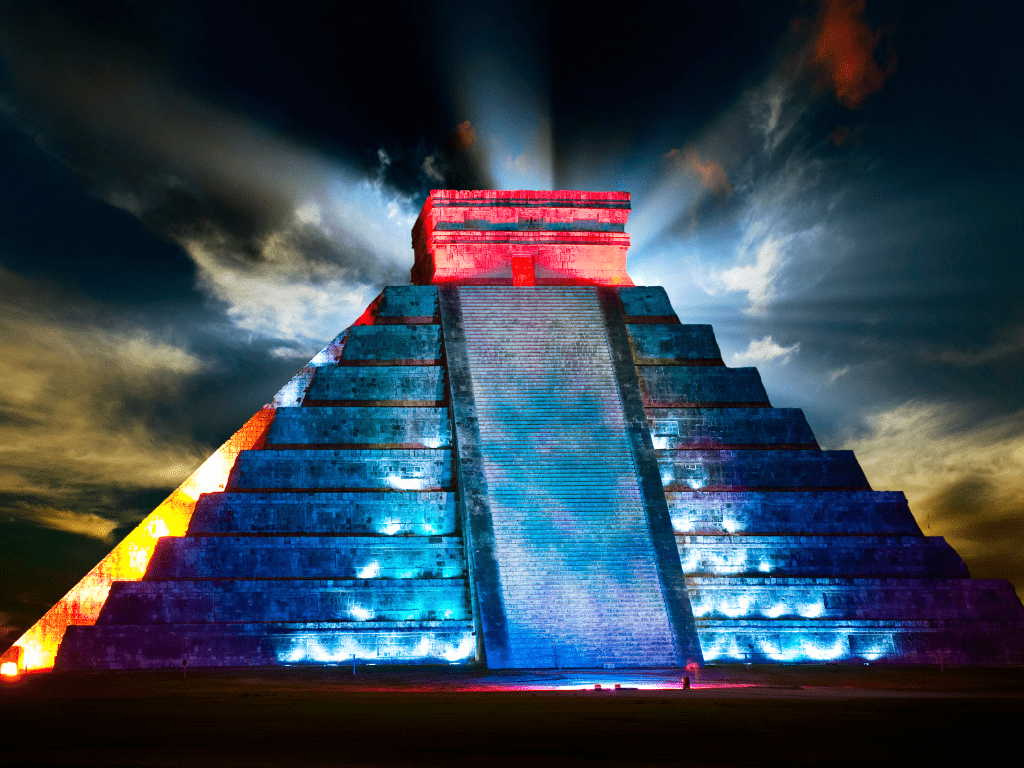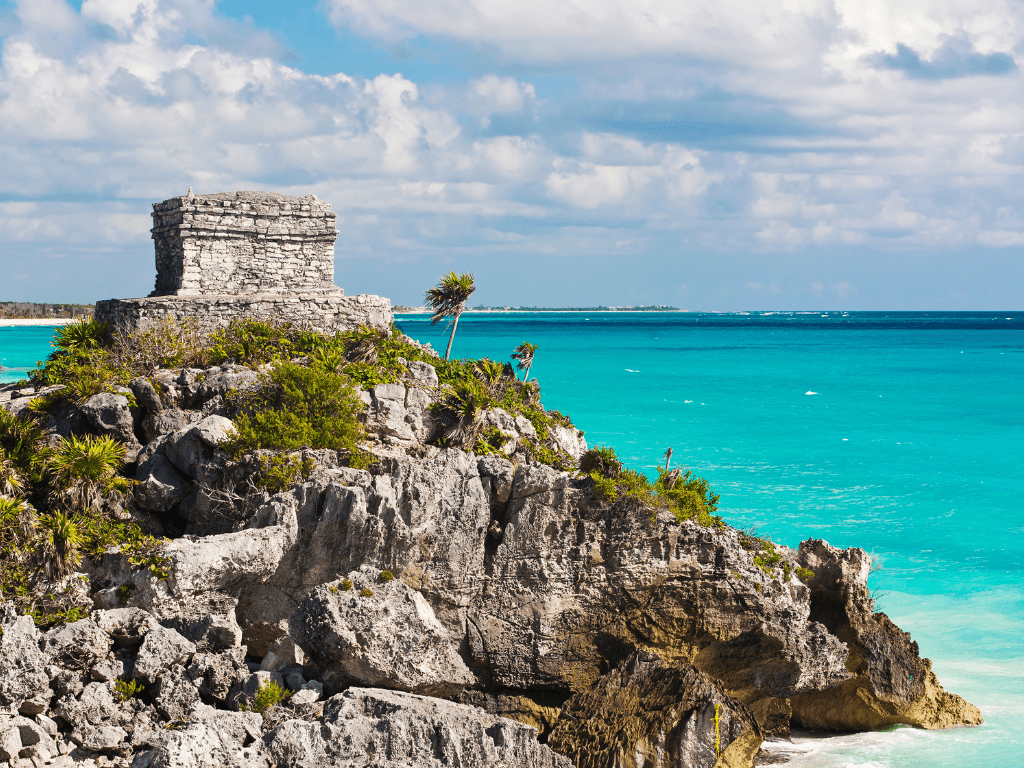The Mayan Train Project
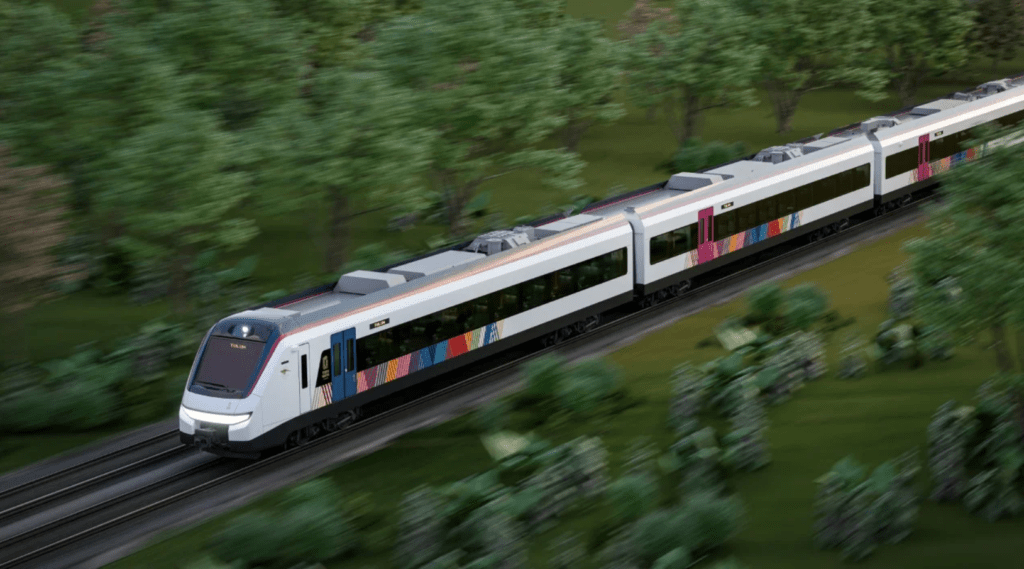
The Mayan Train Project stands as one of Mexico’s most ambitious and thought-provoking infrastructure endeavors to date. With a bold vision, it seeks to forge connections between the Yucatán Peninsula‘s primary tourist hubs and lesser-known inland destinations, which encompass historical Mayan ruins, pristine natural reserves, and vibrant indigenous communities. Beyond its transportation goals, the initiative aspires to be an economic catalyst, generating employment opportunities, preserving the region’s cultural and environmental fabric, and advancing sustainable development.
This is an in-depth study of the project, check out our Tren Maya page for a quick and easy to ready guide.
Stretching across an impressive expanse of 1,525 kilometers, the Mayan Train Project weaves a unifying thread through the southeastern states of Quintana Roo, Chiapas, Tabasco, Campeche, and Yucatán. This extensive rail network emerges as the hallmark project of Mexico’s present leader, President Andrés Manuel López Obrador. Enveloping major urban centers and the coveted tourist landscapes of the Yucatán Peninsula—ranging from the sun-kissed beaches of Cancun to the archaeological wonders of Tulum—the train’s anticipated impact is multi-dimensional. By fostering employment, augmenting production, and invigorating the tourism sector, this initiative is poised to bolster Mexico’s economy while facilitating a journey of exploration and enrichment for both locals and travelers.
While the advantages of the project are evident to a considerable extent, a wave of opposition has surfaced from various quarters, encompassing environmentalists, archaeologists, political figures, and everyday citizens across Mexico. Among these dissenting voices, environmentalists and archaeologists emphasize that the proposed rerouting of the train line into the rainforest could precipitate irreversible harm to the ecosystem. Additionally, they express concerns about the potential peril posed to age-old Maya sites and the vulnerable Great Maya Aquifer, a critical water source serving millions of Mexican inhabitants. Yet, it’s important to acknowledge that a substantial portion of the controversy encircling the construction of this railway system can be attributed to the nuanced landscape of domestic politics, which has become particularly pronounced following President Obrador’s election.
Table of Contents
Introduction
The Mayan Train Project marks a significant milestone in Mexico’s pursuit of sustainable development and economic growth. This ambitious endeavor aims to revolutionize transportation in the Yucatan Peninsula, with its ultimate goal being to boost tourism, foster regional connectivity, and preserve the rich cultural heritage of the Mayan region.
By creating a modern and efficient railway network that spans over 1,500 kilometers, the project seeks to create job opportunities, stimulate local economies, and facilitate cross-cultural interactions. At its core, the Mayan Train Project is not solely focused on infrastructure development but also on environmental conservation.
The Yucatan Peninsula is renowned for its breathtaking natural landscapes and diverse ecosystems boasting remarkable biodiversity. As such, it is crucial for this project to prioritize sustainable practices that minimize the environmental impact while maximizing long-term benefits.
To ensure stakeholder involvement and address concerns raised by indigenous communities and environmental activists, the Mexican government has taken proactive steps by engaging with local populations throughout different stages of planning and execution. Recognizing Indigenous rights as intrinsic to this culturally significant region is paramount in preserving their historical connection to these lands.
One of the primary objectives of this transformational project is to generate employment opportunities for local communities. By embracing community engagement initiatives, such as providing training programs tailored to meet specific needs and involving locals in various aspects of the project’s implementation, job creation can become an empowering force for economic growth.
Moreover, beyond its economic impacts, this initiative also promises tremendous potential for cultural exchange between tourists and locals. The Mayan Train will not only serve as a means of transportation but also promote cultural tourism by highlighting ancient archaeological sites and showcasing indigenous traditions.
This form of tourism can foster a deep appreciation for heritage preservation among visitors while encouraging greater respect for the local way of life. In terms of future expansion plans for this colossal endeavor, certain milestones have already been achieved.
Currently in its initial stages with construction underway on some segments, it is anticipated that the Mayan Train will gradually expand its reach, allowing greater access to remote areas, attracting more visitors, and further stimulating economic growth. The Mayan Train Project represents a transformative vision that intertwines sustainable transportation, economic development, and cultural preservation.
By striking a delicate balance between environmental conservation and infrastructure development, this initiative has the potential to create new horizons for job creation and cross-cultural interactions while simultaneously preserving the rich tapestry of Mayan culture. As construction progresses and future expansion unfolds, it is an auspicious time for both Mexico and the Yucatan Peninsula as they embark on a journey towards regional connectivity and sustainable progress.
Brief overview of the Mayan Train Project
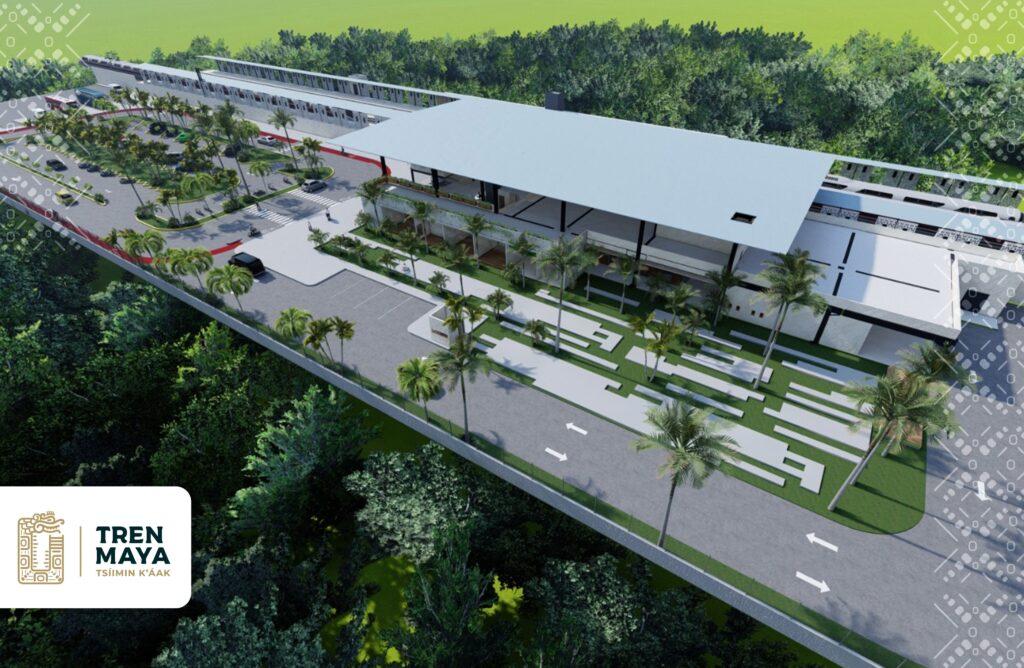
The Mayan Train Project, a monumental infrastructure undertaking in Mexico, holds immense promise for the development and prosperity of the region. This visionary initiative aims to create a modern railway network that will traverse the culturally and historically rich Mayan region. The project’s primary objective is to enhance transportation connectivity, boost tourism, foster economic growth, and preserve the invaluable heritage of the indigenous communities living in this area.
The Mayan Train Project seeks to build upon the rich tapestry of Mayan culture and history that permeates throughout the region. With its numerous archaeological sites scattered across vast landscapes, this area serves as a living testament to the ancient Mayan civilization.
By incorporating these significant cultural landmarks into its route planning, the project honors and preserves this unique heritage. Moreover, it presents an opportunity for international travelers to immerse themselves in the fascinating history that defines this part of Mexico.
In terms of infrastructure development, the Mayan Train Project is set to revolutionize transportation connectivity within Mexico’s southeastern states. By establishing an efficient rail network passing through key cities such as Cancun, Tulum, and Palenque, it will enhance mobility for both locals and tourists alike.
This increased accessibility will stimulate tourism by allowing easy exploration of iconic destinations like Chichén Itzá or Cobá while also opening up lesser-known gems rarely accessible by other means. Employment generation is another crucial aspect tied to this ambitious endeavor.
The construction phase alone is expected to create an abundance of job opportunities for local communities residing within its proximity. Additionally, with improved connectivity between towns and cities along the route comes heightened potential for small businesses and local economies to thrive.
This positive socio economic impact can rejuvenate marginalized regions while promoting community engagement through sustainable development initiatives. While striving for progress on multiple fronts, environmental considerations remain at the core of this project’s vision.
Environmental conservation measures have been integrated into every stage of planning to ensure minimal disruption to ecosystems and biodiversity hotspots found in this region. By prioritizing sustainable practices and adhering to stringent environmental guidelines, the Mayan Train Project aims to strike a delicate balance between development and the preservation of nature.
In order to address concerns related to indigenous rights and environmental activism, the project has actively engaged with local communities and stakeholders. By involving these crucial voices, their cultural heritage and ancestral rights can be safeguarded effectively.
Collective decision-making processes have been established to ensure that the project respects indigenous traditions, promotes cross-cultural interactions, and creates opportunities for cultural tourism that benefit local communities rather than exploit them. As the Mayan Train Project continues to progress towards its project milestones, it presents an exciting future of regional connectivity for Mexico’s southeastern states.
The expansion of the railway network will enable seamless travel experiences for both domestic and international tourists while fostering economic growth along its path. Furthermore, this ambitious endeavor serves as a beacon of hope for sustainable development practices that can be replicated in other parts of the world, striking a harmonious balance between progress, preservation, and equity.
Importance of the project in Mexico’s development
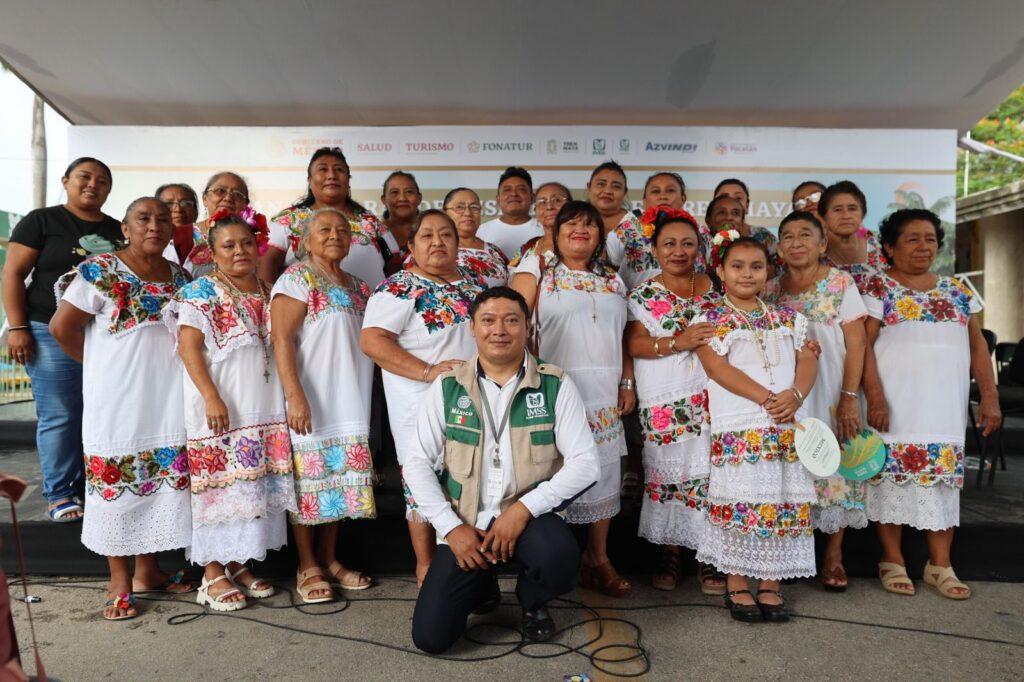
The Maya Train Project holds immense importance for Mexico’s overall development, as it aims to address multiple facets of the country’s growth and progress. The project is not simply focused on transportation infrastructure but encompasses broader objectives that have far-reaching implications for various sectors of the Mexican economy. One key aspect highlighting the project’s importance is its potential to stimulate economic growth and create employment opportunities.
The construction and subsequent operation of the Maya Train will necessitate a significant workforce, thereby generating jobs in both urban centers and rural areas along its route. This will have a positive impact on local economies, particularly those that have historically faced limited job prospects.
Moreover, as tourism is expected to thrive with improved accessibility, communities along the train line will also benefit from increased business opportunities and revenue generation. Beyond economic considerations, the project also takes into account social aspects such as community engagement and indigenous rights.
By involving local communities in decision-making processes, the Maya Train Project aims to ensure that their voices are heard and their interests are protected throughout all stages of development. Initiatives are being undertaken to actively engage indigenous groups residing in these regions, acknowledging their unique cultural heritage and ensuring that they are active stakeholders in shaping the project’s outcomes.
This approach recognizes the significance of indigenous heritage while promoting sustainable practices within a modern framework. From an environmental perspective, Mexico has recognized the need for responsible development that considers biodiversity conservation and minimizes negative ecological impact.
The Maya Train Project incorporates sustainability measures aimed at preserving natural ecosystems along its route while maximizing efficiency in terms of resource consumption and waste management. Environmental conservation efforts include reforestation programs, wildlife protection measures, carbon offset initiatives, and adherence to international standards for sustainable transportation infrastructure.
Furthermore, this project has symbolic importance by placing Mexico at the forefront of cultural tourism worldwide. With numerous archaeological sites dotted along its route showcasing Mayan culture and heritage preservation efforts taking place hand-in-hand with infrastructure development, tourists will have access to a unique travel experience.
The Maya Train will foster cross-cultural interactions, enabling visitors to appreciate the richness of Mexico’s indigenous heritage and facilitating a greater understanding of their historical contributions to human civilization. The Maya Train Project serves as a catalyst for Mexico’s development on multiple fronts.
Its economic significance lies in job creation and business opportunities, while its social importance is underscored by community engagement and the protection of indigenous rights. Simultaneously, sustainable practices ensure that environmental conservation remains a priority throughout the project’s implementation.
With its potential to boost tourism and promote cultural exchange, it positions Mexico as a global leader in both heritage preservation and regional connectivity. As the project advances towards future milestones, it holds promising prospects for sustaining Mexico’s development trajectory while cherishing its diverse cultural and natural legacies.
Historical and Cultural Significance of the Mayan Region
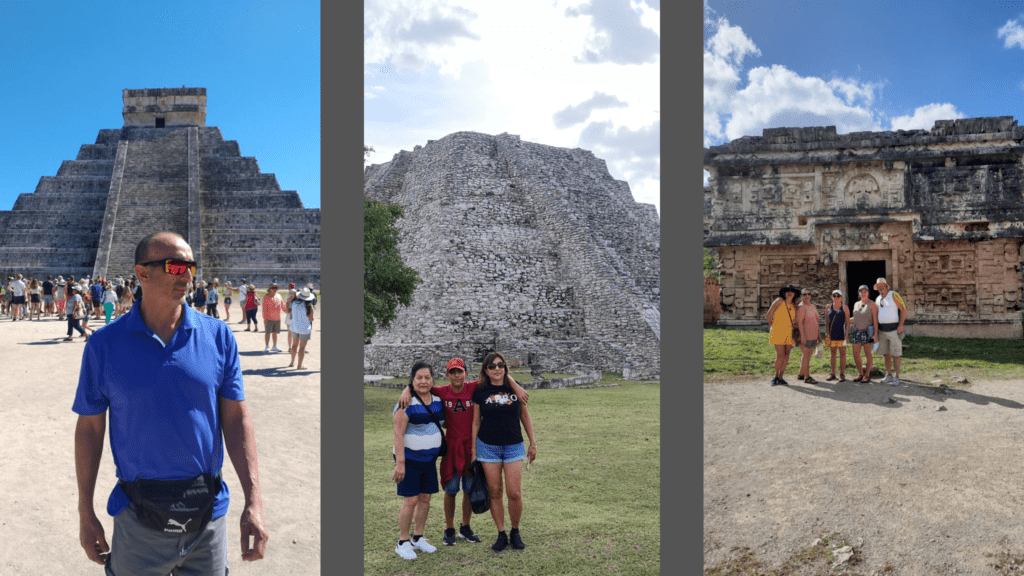
The Mayan region, with its captivating historical and cultural legacy, holds immense significance that extends far beyond its ancient ruins and archaeological sites. This culturally diverse area, encompassing parts of Mexico, Guatemala, Belize, and Honduras, is home to the remnants of the great Mayan civilization. With their advanced achievements in architecture, astronomy, mathematics, and artistry, the Maya left an indelible mark on human history.
The preservation and celebration of this heritage are integral to understanding our shared past. Mayan culture permeates every aspect of life in the region.
The influence of their traditions can still be seen in modern-day rituals and festivities. From colorful traditional dress to intricate handicrafts like textiles and pottery adorned with ancient symbols and motifs representing cosmic concepts or deities intricately woven into daily life.
This vibrant tapestry showcases a living connection between past civilizations and present-day communities. One cannot ignore the profound impact of Mayan archaeological sites scattered throughout the region.
These sacred grounds hold centuries-old secrets waiting to be unveiled by archaeologists who tirelessly work to uncover them. Sites such as Chichen Itza in Mexico or Tikal in Guatemala stand as testaments to a civilization’s ingenuity that flourished amidst dense jungles and unforgiving landscapes.
The indigenous heritage within the Mayan region is deeply rooted in its cultural fabric. The descendants of this ancient civilization continue to preserve their beliefs, languages, traditions while battling against forces that threaten their way of life.
Environmental conservation efforts often intertwine with indigenous activism as they fight for sustainable practices that honor their ancestors’ deep connection with nature. Preserving this rich cultural heritage is not only important for local communities but also for global understanding and appreciation of humanity’s collective past.
Cultural tourism presents an opportunity for cross-cultural interactions where visitors can learn from local communities directly impacted by tourism activities while experiencing the depth of history firsthand. In light of these historical and cultural significance, it becomes crucial to examine how the Mayan Train Project aims to respect and protect the region’s heritage throughout its development.
Stakeholder involvement, including indigenous communities, is vital in ensuring that their voices are heard and their rights respected. Balancing the need for infrastructure development and economic growth with heritage preservation and sustainable transportation presents challenges that must be met with careful consideration.
The Mayan Train Project has the potential to not only boost tourism but also foster regional connectivity by linking various archaeological sites, towns, cities, and natural wonders through an efficient transportation network. By promoting cultural tourism while implementing sustainable practices, this project can create opportunities for local economies to thrive while safeguarding environmental conservation efforts and preserving biodiversity.
As we move forward with the Mayan Train Project, it is imperative that future expansion plans prioritize community engagement and respect for cultural heritage. The milestones achieved should not solely be measured in kilometers of tracks laid or increased tourist numbers but rather in how this infrastructure development project contributes positively to the region’s social fabric, economic prosperity, environmental conservation, and cross-cultural interactions.
By cherishing the historical roots of the Mayan region while embracing its future potential through responsible development practices, we can ensure a harmonious coexistence between past treasures and present aspirations. The Mayan Train Project offers us a unique opportunity to unlock new chapters of history while creating a sustainable legacy for generations to come.
Mayan culture, archaeological sites, indigenous heritage
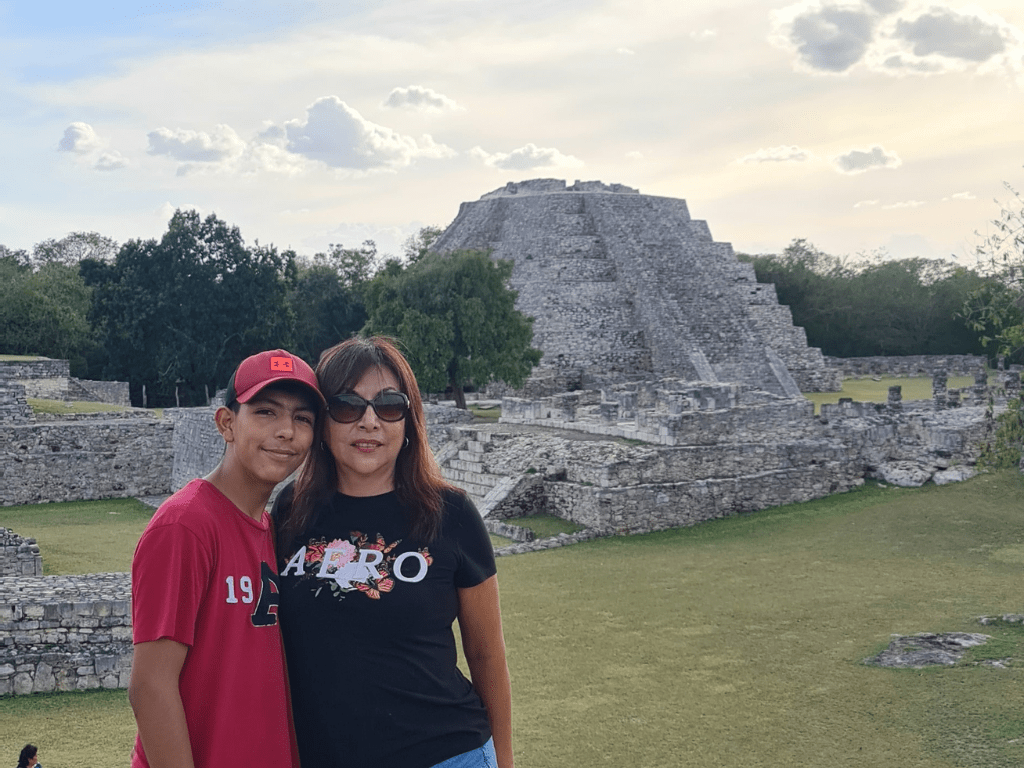
The Mayan Train Project holds immense significance not only in terms of infrastructure development and sustainable transportation but also in preserving the rich Mayan culture, protecting archaeological sites, and honoring indigenous heritage. The project aims to strike a delicate balance between progress and cultural preservation, ensuring that the region’s historical legacy remains intact for future generations. Mayan culture stands as a testament to the remarkable achievements of an ancient civilization.
The Mayans’ intricate knowledge of astronomy, mathematics, architecture, and agriculture left an indelible mark on our understanding of human history. From awe-inspiring pyramids to hieroglyphic inscriptions that unravel their complex belief system, the archaeological sites scattered across the Mayan region offer a glimpse into this extraordinary civilization’s past splendor.
Preserving these archaeological sites is crucial to safeguarding our shared heritage. The Mayan Train Project recognizes this responsibility by implementing measures to minimize the impact on these fragile sites during construction and operation.
Through stakeholder involvement and close collaboration with experts in archaeology and heritage preservation, steps are taken to ensure that any potential disruptions are mitigated while providing opportunities for visitors to appreciate these remarkable historical landmarks. An integral part of Mayan culture is deeply rooted in indigenous heritage.
Indigenous communities have inhabited this region for centuries, preserving their unique traditions, languages, and spiritual practices against all odds. The project acknowledges the importance of engaging with local communities throughout its development stages by fostering dialogue and seeking their input.
By prioritizing community engagement, the project aims to contribute positively to local economies through job creation and increased tourism opportunities while respecting indigenous rights. This approach ensures that indigenous communities are active participants rather than passive recipients in the project’s benefits.
Sustainable practices play a crucial role in balancing economic growth with environmental conservation efforts throughout the project’s lifespan. Protecting the region’s biodiversity is paramount as it not only preserves fragile ecosystems but also contributes to its appeal as a tourist destination.
By adopting eco-friendly technologies and implementing measures to minimize carbon footprint, the Mayan Train Project strives to set an example of responsible development that prioritizes both economic progress and environmental stewardship. The Mayan Train Project recognizes the importance of preserving Mayan culture, safeguarding archaeological sites, and honoring indigenous heritage.
By actively engaging with local communities and stakeholders, it aims to strike a harmonious balance between sustainable development and cultural preservation. Through its commitment to environmental conservation and responsible practices, the project seeks to create a model for future expansion while ensuring regional connectivity that celebrates the unique heritage of this extraordinary region.
Project Overview and Goals

The Mayan Train Project stands as a monumental endeavor that seeks to transform the landscape of the Mayan region in Mexico. With its ambitious goals and far-reaching vision, this project aims to bring about significant improvements in infrastructure development, sustainable transportation, and tourism.
By integrating various aspects of economic growth and cultural preservation, the Mayan Train Project strives to create a harmonious balance between progress and heritage. In terms of its project overview, the Mayan Train Project entails the construction of a railway system that will connect multiple states within the Mayan region.
Spanning approximately 1,500 kilometers, this extensive network will link popular tourist destinations, archaeological sites of historical significance, and indigenous communities. This transportation infrastructure is envisioned not only as a means to boost tourism but also as a catalyst for regional connectivity and economic development.
One of the primary goals of the Mayan Train Project is to enhance sustainable practices in transportation. By providing an alternative to road travel and reducing carbon emissions associated with individual vehicles, this railway system aims to mitigate environmental impacts while promoting efficient mobility.
The project’s environmental impact assessment incorporates measures to safeguard biodiversity along its route while respecting indigenous rights and heritage preservation. Community engagement and stakeholder involvement are paramount considerations within the framework of the Mayan Train Project’s goals.
Local economies are expected to flourish as job creation opportunities arise during both construction and operation phases. The project envisions equitable distribution of benefits among communities residing along its path by encouraging active participation and fostering dialogue with all stakeholders involved.
Furthermore, cultural tourism holds immense potential through cross-cultural interactions facilitated by improved connectivity across regions rich in indigenous heritage. This aspect underlines not only economic gains but also raises awareness about indigenous cultures—allowing for mutual understanding between visitors and local communities.
Looking towards future expansion, milestones achieved during different phases will shape further development plans for the Mayan Train Project. Continuous evaluation will ensure that it adheres to sustainable practices while adapting to emerging needs and challenges.
The project aims to strike a delicate balance by promoting economic growth, preserving cultural heritage, and addressing environmental concerns in a comprehensive manner. The Mayan Train Project’s project overview and goals reflect an ambitious initiative that seeks to transform the Mayan region of Mexico.
With its focus on sustainable transportation, community engagement, cultural tourism, and environmental conservation, this project holds the potential to elevate local economies while preserving indigenous heritage. As it progresses through different stages of implementation, the Mayan Train Project promises to enhance regional connectivity and redefine the way we understand development in a manner that respects both past and future generations.
Detailed explanation of the Mayan Train Project’s objectives

The Maya Train Project aims to revolutionize transportation and tourism in the Mayan region of Mexico, with a comprehensive set of objectives that encompass various aspects of development. First and foremost, the project seeks to enhance regional connectivity by establishing a modern and efficient transportation network.
By linking major tourist destinations within the Yucatan Peninsula, such as Cancun, Tulum, Chichen Itza, and Palenque, the Maya Train will facilitate seamless travel for both domestic and international visitors. In addition to its transportation goals, the project includes a strong emphasis on sustainable development.
The Maya Train Project aims to promote sustainable transportation practices by using eco-friendly technologies and reducing carbon emissions. By offering an alternative to road travel and promoting rail transport, it seeks to alleviate congestion on highways while minimizing negative environmental impacts.
Moreover, the Maya Train Project has ambitious plans for job creation and economic growth in the region. The construction phase alone is expected to generate thousands of employment opportunities for local communities.
Once operational, the project will not only provide jobs in administration and operations but also contribute to boosting local economies through increased tourism activities along its route. Another key objective of this project is to preserve and showcase the rich cultural heritage of the Mayan region.
With an abundance of archaeological sites steeped in Mayan history and culture scattered across its path, the Maya Train Project aspires to promote cultural tourism by creating opportunities for visitors to explore these ancient wonders. This endeavor will not only raise awareness about indigenous heritage but also foster cross-cultural interactions between tourists and local communities.
Furthermore, with an eye toward sustainable development, efforts are being made by stakeholders involved in this venture to ensure environmental conservation throughout each phase of implementation. Measures are being taken to minimize disruption to sensitive ecosystems along the train’s route while safeguarding biodiversity hotspots present within its vicinity.
Significant progress has already been made regarding these objectives since the inception of this ambitious undertaking. Several sections of track have been laid, marking important project milestones, and construction is ongoing in various locations.
The Maya Train Project is expected to continue expanding its reach in the coming years, with plans to extend the rail network further into neighboring states. By comprehensively addressing transportation needs, environmental concerns, job creation, cultural preservation, and economic growth, the Maya Train Project demonstrates a holistic approach to regional development.
It aims to unlock the untapped potential of the Mayan region while respecting indigenous rights and promoting sustainable practices. With its multifaceted objectives and significant progress achieved thus far, this project holds immense promise for transforming the Mayan region into a thriving hub of tourism and cultural exchange.
Infrastructure development, sustainable transportation, tourism boost
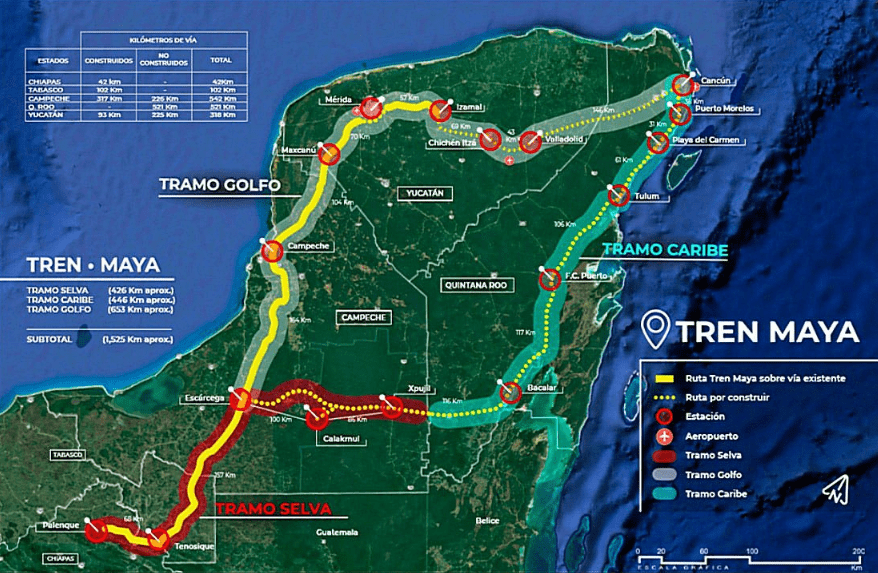
The Maya Train Project is a monumental undertaking that not only promises significant infrastructure development but also aims to revolutionize sustainable transportation in the Mayan region of Mexico. With its primary objective being the creation of a railway network connecting various archaeological sites and tourist destinations, this ambitious project is expected to bring about a substantial tourism boost while ensuring the preservation of the region’s cultural and natural heritage. Infrastructure development lies at the heart of the Maya Train Project.
By establishing a modern and efficient railway network, this initiative seeks to enhance connectivity and accessibility across the Mayan region. This ambitious endeavor involves constructing new rail lines, renovating existing tracks, and developing state-of-the-art stations.
The goal is to provide locals and visitors alike with reliable transportation options, facilitating seamless travel between different attractions while minimizing environmental impact. Sustainable transportation practices form an integral part of the Maya Train Project’s vision.
Recognizing the significance of reducing carbon emissions and environmental footprint, the project focuses on implementing eco-friendly solutions throughout its operations. This includes utilizing energy-efficient locomotives powered by clean energy sources such as electricity or renewables.
By promoting sustainable practices in transportation, this initiative not only contributes towards mitigating climate change but also sets an example for future infrastructure projects worldwide. The tourism boost expected from the Maya Train Project holds immense potential for economic growth within local economies.
As tourists flock to explore archaeological sites like Chichen Itza or experience traditional Mayan culture in vibrant communities along the railway route, opportunities for employment will arise. Local businesses will thrive as they cater to increased visitor demand for accommodation, food, souvenirs, and guided tours.
Moreover, community engagement programs can empower indigenous communities by encouraging their involvement in various aspects of tourism development while safeguarding their rights and heritage. The interplay between infrastructure development, sustainable transportation practices, and a tourism boost can enhance regional connectivity in unprecedented ways.
The Maya Train Project envisions creating linkages between remote areas that were previously difficult to access, providing both locals and tourists with improved mobility options. This connectivity will enable not only economic growth but also foster cross-cultural interactions, as people from diverse backgrounds come together to appreciate the rich tapestry of Mayan culture and heritage.
Through regional connectivity, the project aims to strengthen social bonds and promote a sense of unity among communities in the Mayan region. The Maya Train Project represents a transformative effort that encapsulates infrastructure development, sustainable transportation practices, and a tourism boost.
By forging new railway connections amidst the breathtaking landscapes of the Mayan region, this initiative fosters economic growth while preserving indigenous heritage and ecological diversity. It holds the promise of creating a landmark achievement in Mexico’s development as it paves the way towards regional connectivity, supports local economies, facilitates cross-cultural interactions, and ushers in an era of sustainable travel in this culturally rich part of the world.
Economic and Social Impact
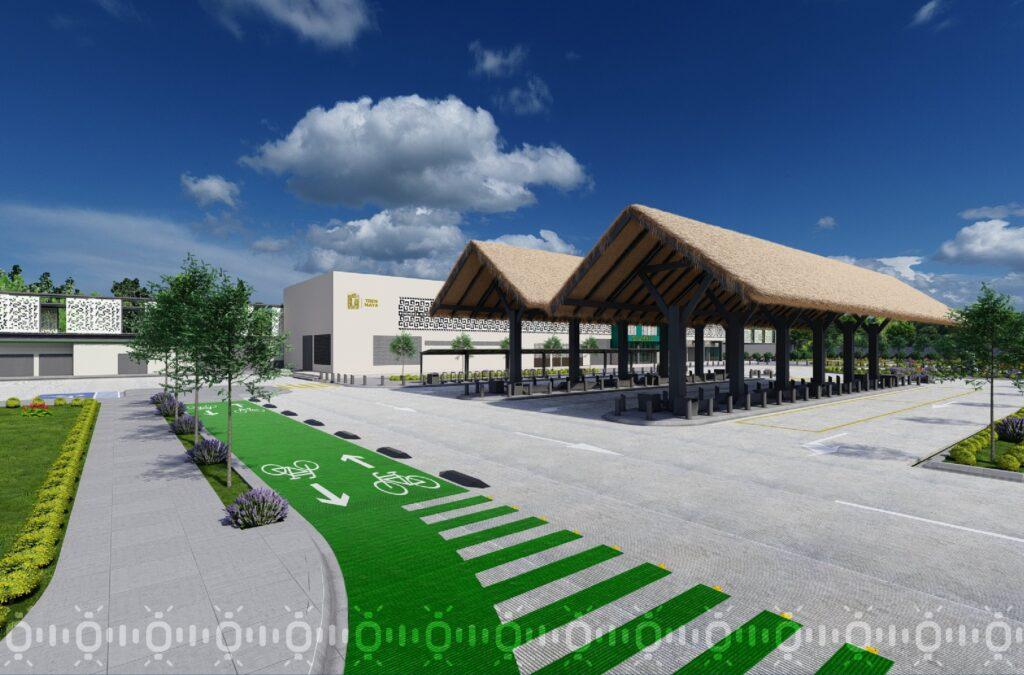
The Mayan Train Project holds immense potential for generating significant economic and social impact in the region. By improving infrastructure and transportation, it aims to boost local economies, create employment opportunities, and enhance regional connectivity. Simultaneously, the project seeks to preserve indigenous heritage, foster cross-cultural interactions, and promote sustainable practices.
One of the primary economic benefits of the Mayan Train Project is job creation. As construction progresses and operations commence, numerous employment opportunities will be generated across various sectors such as hospitality, tourism services, transportation, and maintenance.
This influx of jobs will not only improve local economies but also provide a source of income for many individuals in communities along the train route. Moreover, it is anticipated that the project will stimulate entrepreneurship and investment in sectors related to cultural tourism.
In addition to job creation, the Mayan Train Project also holds great potential for boosting tourism in the region. With improved infrastructure development and better access to remote areas that house archaeological sites of immense historical significance, tourists will be drawn to explore the rich Mayan culture and heritage that permeates this region.
This increased tourist traffic has a multiplier effect on local economies as it leads to increased demand for goods and services provided by local communities. The project’s economic impact goes hand in hand with its social implications on local communities.
Community engagement is a crucial aspect of this endeavor as it seeks active involvement from indigenous groups residing along the train route. It is essential that their rights are respected throughout every stage of the project’s development – from planning to implementation – ensuring fair compensation while preserving their cultural heritage.
Furthermore, cultural tourism plays a vital role in promoting cross-cultural interactions between locals and tourists alike. The Mayan Train Project offers an opportunity for visitors from around the world to engage with indigenous communities by experiencing their traditions firsthand through immersive cultural experiences.
This exchange not only enriches visitors’ understanding of different cultures but also provides an avenue for locals to share their customs while fostering appreciation and respect. Looking towards the future, the Mayan Train Project has the potential for expansion beyond its initial route.
The project’s milestones will serve as stepping stones to further develop regional connectivity, opening doors for new economic opportunities in previously underserved areas. This expansion will contribute to sustainable transportation options and encourage environmentally friendly practices such as reducing carbon emissions and promoting biodiversity conservation.
The Mayan Train Project’s economic and social impact promises to be transformative for the region. Job creation, tourism boost, community engagement, and cross-cultural interactions are just a few of the positive outcomes that can be expected.
As progress continues and the project expands, it is essential to ensure that these developments align with sustainable practices, heritage preservation, and respect for indigenous rights. By doing so, this ambitious endeavor will not only bring economic prosperity but also foster greater understanding and appreciation of the Mayan culture.
Discussion of the anticipated economic benefits for the region

Discussion of the anticipated economic benefits for the region: The Mayan Train Project has been hailed as a transformative force that is set to bring substantial economic benefits to the region. With its ambitious infrastructure development plans and emphasis on sustainable transportation, this project holds immense potential to boost tourism, create jobs, and stimulate local economies.
The projected economic impact of the Mayan Train has generated great enthusiasm among policymakers and investors alike. One of the key economic advantages expected from the project is job creation.
As the construction of new train tracks, stations, and related facilities gets underway, thousands of workers from various sectors are expected to be employed. From engineers and construction workers to hospitality staff and tour guides, a wide range of employment opportunities will emerge across different skill levels.
This surge in employment will not only improve livelihoods but also contribute to poverty reduction in the region. Moreover, cultural tourism is anticipated to flourish due to improved accessibility provided by the Mayan Train.
This project promises heightened connectivity between archaeological sites, indigenous communities, and major tourist destinations within the Mayan region. Tourists will now have convenient access to world-renowned heritage sites such as Chichen Itza, Tulum, and Palenque.
In turn, this increased footfall is likely to generate significant revenue for local businesses offering accommodations, dining experiences rooted in Mayan cuisine, handicrafts showcasing indigenous heritage, and guided tours. Heritage preservation will also benefit from enhanced economic opportunities brought by the train project.
Indigenous communities residing near or within archaeological sites will be able to engage in culturally sensitive tourism activities while preserving their traditional practices. The influx of visitors can create demand for authentic experiences offered by local communities such as traditional ceremonies or workshops on traditional crafts like weaving or pottery making.
This preservation effort bolsters pride in indigenous culture while providing sustainable income streams for these communities. In addition to direct economic benefits generated through tourism-related activities, the Mayan Train Project has significant potential for stimulating local economies.
The train stations along the route will serve as hubs for economic activities, attracting businesses like restaurants, hotels, souvenir shops, and transportation services. These establishments will not only cater to tourists but also serve the needs of local communities and visitors traveling within the region.
Such development has a multiplier effect on employment and income generation, supporting small enterprises and contributing to overall regional prosperity. As regional connectivity improves, cross-cultural interactions are expected to foster an environment of understanding and appreciation among diverse communities.
The Mayan Train Project provides a platform for cultural exchange between locals, domestic travelers, and international tourists. Such interactions can lead to increased awareness of Mayan culture and traditions while promoting a harmonious coexistence between different identity groups within the region.
The anticipated economic benefits of the Mayan Train Project are vast and promising for the region. Job creation opportunities across various sectors, flourishing cultural tourism industry, heritage preservation initiatives by indigenous communities, stimulation of local economies through small businesses, and fostering cross-cultural interactions are all pivotal aspects that contribute to a positive economic transformation in this historically significant part of Mexico.
Social implications on local communities and their way of life
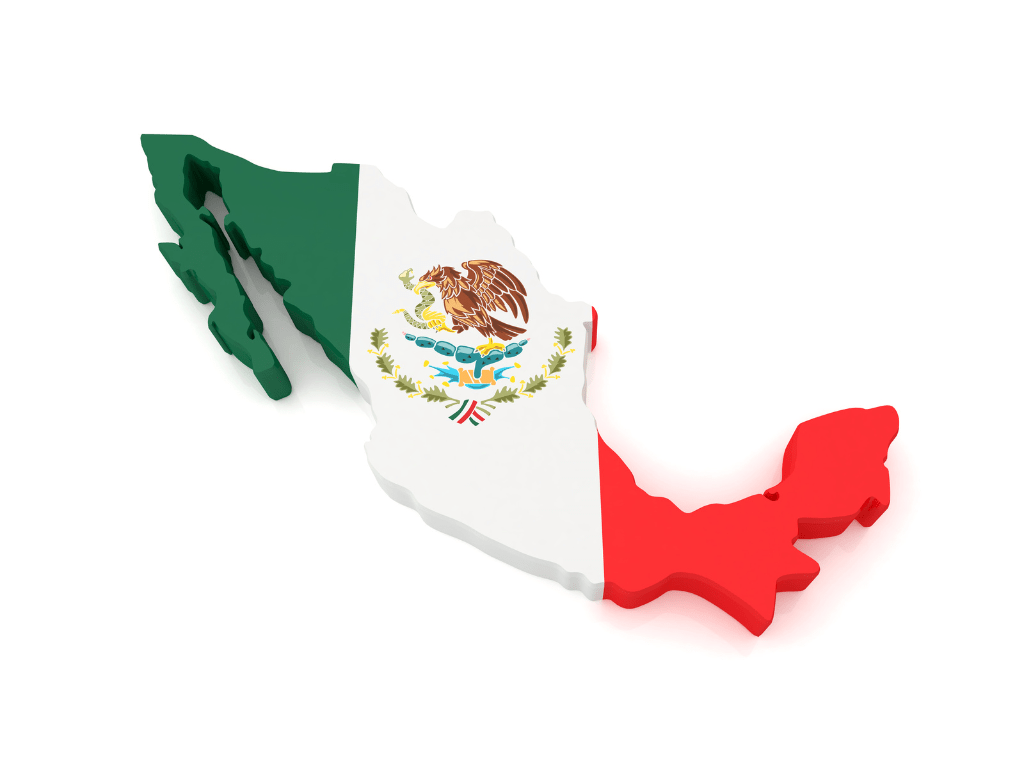
The Mayan Train Project has significant social implications on the local communities residing along its proposed route, offering both opportunities and challenges.
As this transformative infrastructure development takes shape, it is crucial to analyze how it will impact the people whose lives are intertwined with the rich cultural heritage and natural beauty of the Mayan region. One of the key social benefits anticipated from the project is job creation.
The implementation of the Mayan Train Project is expected to generate employment opportunities for local communities, helping to stimulate their economies and improve livelihoods. With increased tourism, there will be a growing demand for services such as hospitality, transportation, and craft production in these areas.
This economic boost has the potential to uplift people’s standard of living, reduce poverty levels, and enhance overall social well-being. However, alongside these positive aspects come certain challenges that must be addressed with sensitivity.
The influx of tourists may exert pressures on local cultures and ways of life. There is a need for careful planning to ensure that traditional practices are preserved while allowing for a mutually beneficial exchange between visitors and community members.
Cultural tourism can play a vital role in striking this balance by promoting awareness about indigenous heritage while respecting cultural sensitivities. Community engagement is paramount in ensuring that local residents have an active role in shaping their own destinies within this evolving landscape brought about by the Mayan Train Project.
Meaningful consultation with indigenous groups must take place throughout all stages of planning and implementation to safeguard their rights and preserve their invaluable contributions to society. Stakeholder involvement goes beyond consultation; it requires genuine collaboration between government authorities, project developers, community representatives, environmental activists, and other concerned parties.
By fostering inclusive decision-making processes that incorporate diverse perspectives and interests, we can work towards sustainable practices that benefit all stakeholders involved. In order to fully appreciate these social implications on local communities’ way of life caused by the Mayan Train Project, it is essential to recognize the significance of the region’s biodiversity and environmental conservation.
Indigenous communities have long been guardians of their lands, ensuring the preservation of natural resources and traditional knowledge. The project must align with sustainable transportation practices, minimizing its impact on ecosystems while promoting ecological education and awareness among visitors.
With a clear understanding of these social implications and a commitment to community engagement, the Mayan Train Project has the potential to foster cross-cultural interactions that respect indigenous heritage, strengthen local economies, preserve biodiversity, and provide lasting benefits for present and future generations. By prioritizing social responsibility alongside infrastructure development, we can nurture a sustainable future that harmonizes with the unique identity of this culturally rich region while connecting it to broader networks through regional connectivity.
Job creation, local economies, community engagement

Within the context of the Maya Train Project, one of the key aspects that has garnered significant attention is its potential for job creation and its impact on local economies. The project has been envisioned not only as a means of infrastructure development and regional connectivity but also as a catalyst for economic growth and community engagement. By examining these factors in detail, we can better understand the ways in which the Maya Train Project aims to uplift local communities while preserving their cultural and natural heritage.
Job creation stands at the forefront of the project’s goals, as it seeks to generate employment opportunities for communities along its route. The construction phase alone is expected to create a substantial number of jobs, ranging from manual labor to skilled positions such as engineering and architecture.
Additionally, once operational, the Maya Train will require personnel for various roles including train operators, maintenance staff, hospitality services, and tourism-related jobs. This influx of employment opportunities has the potential to significantly improve livelihoods within these regions.
Moreover, by bolstering local economies through increased tourism activities facilitated by improved transportation infrastructure, the Maya Train Project aims to provide sustained economic benefits beyond just job creation. The train’s routes have been carefully planned to connect key archaeological sites and areas rich in Mayan culture.
This strategic approach ensures that tourists are encouraged not only to visit popular attractions but also explore lesser-known destinations off the beaten path. By doing so, revenue generated from tourism can be more evenly distributed among nearby communities.
To ensure long-term success and sustainable development within these communities, active community engagement is crucial. The project emphasizes stakeholder involvement throughout its planning and execution stages by actively consulting with local residents, indigenous communities, environmental activists, and other relevant parties.
By incorporating their perspectives into decision-making processes regarding route planning or addressing concerns related to environmental impacts or indigenous rights, protection measures can be taken to mitigate negative consequences while maximizing positive outcomes. Furthermore, community engagement extends beyond participation in decision-making processes; it involves fostering cross-cultural interactions and promoting cultural tourism.
The Maya Train Project provides an opportunity for visitors from different parts of the world to immerse themselves in the rich Mayan heritage preserved within these regions. This exchange not only increases awareness and appreciation for indigenous culture but also empowers local communities to share their traditions, handicrafts, and culinary delights, thereby boosting local economies through increased tourism revenues.
The Maya Train Project’s impact extends far beyond physical infrastructure development and regional connectivity. By focusing on job creation, stimulating local economies, fostering community engagement, and promoting cultural exchange, it seeks to uplift communities along its route while preserving their unique heritage.
The project aims to generate sustainable economic growth that benefits both present and future generations by striking a balance between environmental conservation, social responsibility, and economic prosperity. As milestones are achieved throughout its implementation, the transformative potential of the Maya Train Project becomes increasingly evident.
Environmental Considerations and Sustainability
The Mayan Train Project is not only aimed at boosting tourism and regional connectivity but also pays significant attention to environmental conservation and sustainability.
Recognizing the importance of preserving the fragile ecosystems and biodiversity of the Mayan region, the project has undertaken a comprehensive environmental impact assessment to minimize its ecological footprint. One of the key measures implemented by the project is the adoption of sustainable practices throughout its construction and operation.
This includes utilizing eco-friendly construction materials, implementing waste management systems, and promoting energy efficiency in train operations. Through these practices, the project aims to reduce carbon emissions, minimize resource consumption, and promote a greener approach to transportation infrastructure development.
Furthermore, stakeholder involvement plays a crucial role in ensuring that environmental concerns are addressed adequately. The project actively engages with environmental activists, indigenous communities, local authorities, and other relevant stakeholders to gain their insights and perspectives on environmental issues.
By incorporating their inputs into decision-making processes, it aims to foster a sense of ownership among stakeholders while ensuring that their concerns regarding ecological preservation are taken into account. Preserving the indigenous heritage and cultural richness of the Mayan region is another aspect closely tied to environmental considerations within this project.
The implementation of sustainable tourism practices emphasizes cultural tourism as a means of promoting cross-cultural interactions while preserving Mayan culture. This approach allows visitors to appreciate archaeological sites without jeopardizing their integrity or disrupting local communities’ way of life.
To further enhance sustainability efforts beyond its initial phase, future expansion plans for the Mayan Train Project incorporate innovative strategies for maintaining biodiversity corridors along its route. These corridors would serve as protected areas that facilitate wildlife movement across fragmented habitats caused by infrastructure development.
Such initiatives demonstrate long-term commitment towards minimizing negative ecological impacts while contributing positively to conserving local flora and fauna. Environmental conservation and sustainability are integral components of the Mayan Train Project’s vision for development in Mexico’s Mayan region.
Through sustainable practices like eco-friendly construction, stakeholder involvement, and cultural tourism promotion, the project aims to strike a balance between economic growth and ecological preservation. By considering indigenous heritage, preserving archaeological sites, and planning for future expansion with biodiversity corridors in mind, the project ensures a comprehensive and responsible approach towards creating regional connectivity while safeguarding the environment’s integrity.
Implementation of eco-friendly measures

Implementation of eco-friendly measures: To ensure the sustainability of the Mayan Train Project, the implementation of eco-friendly measures has become a paramount concern.
Recognizing the importance of environmental conservation and minimizing ecological impact, authorities have taken significant steps to incorporate sustainable practices into every stage of the project’s development. From construction to operation, these measures aim to balance infrastructure development with preserving the region’s rich biodiversity and cultural heritage.
One key aspect of the eco-friendly approach is reducing carbon emissions and promoting sustainable transportation. The Mayan Train Project endeavors to utilize modern technology that minimizes greenhouse gas emissions during train operations.
By incorporating advanced locomotives powered by renewable energy sources such as electricity or clean biofuels, it aims to significantly reduce carbon footprints compared to traditional transportation modes. This not only aligns with broader global efforts towards mitigating climate change but also showcases Mexico’s commitment to sustainable development.
Furthermore, environmental safeguards include careful consideration for protected areas and archaeological sites along the train route. The project design prioritizes avoiding or minimizing any negative impacts on these invaluable cultural assets.
Environmental impact assessments have been conducted in collaboration with archaeologists, biologists, and indigenous communities to ensure that construction activities do not harm sensitive ecosystems or disrupt archaeological treasures. In addition to protecting natural resources, the Mayan Train Project emphasizes community engagement and socio-economic benefits for local economies.
By involving local communities in employment opportunities throughout various project phases – including construction, maintenance, and tourism-related services – it ensures their active participation while fostering economic growth in traditionally marginalized areas. Such job creation generates multiple positive effects like reduced poverty rates and increased regional connectivity.
To enhance cross-cultural interactions and promote cultural tourism sustainably, innovative strategies are being implemented as part of heritage preservation efforts along the train route. Local artisans are being encouraged to showcase their craftsmanship through designated stops where travelers can learn about indigenous traditions such as weaving techniques or pottery making.
These initiatives not only offer visitors unique experiences but also contribute to the economic empowerment of indigenous communities and the perpetuation of their invaluable cultural heritage. As the Mayan Train Project progresses, future expansion plans will continue to incorporate eco-friendly measures.
The aim is to create a comprehensive transportation network that connects even more regions while minimizing negative environmental impacts. A commitment to sustainable practices will remain at its core, ensuring that the project continues to balance economic growth and infrastructure development with preserving the Mayan region’s natural wonders, archaeological sites, and indigenous rights for generations to come.


